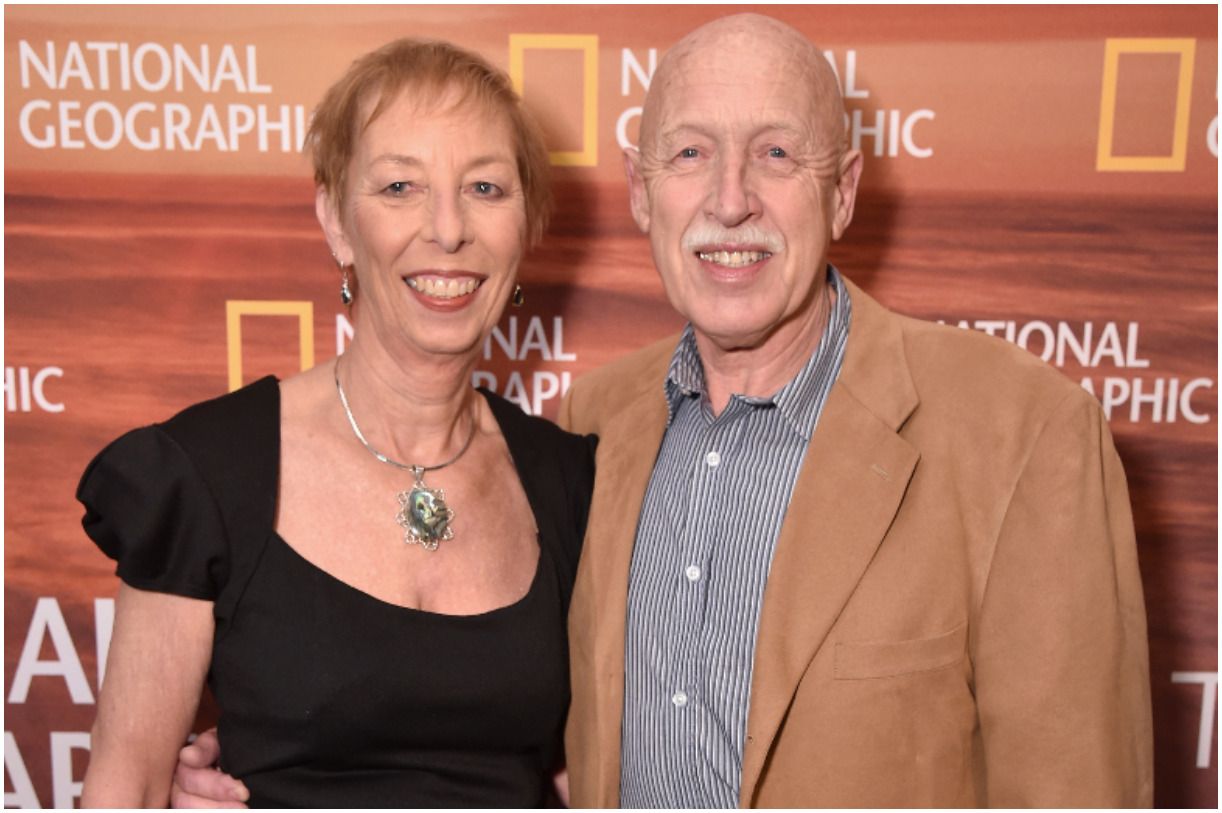People often find themselves quite curious about the lives of public figures, especially those who share a piece of their world with us through television. It is, you know, a very natural thing to wonder about the folks we see on screen, to feel a sense of connection to their stories and the happenings in their lives. This curiosity, in some respects, often extends to their loved ones, like the family members who stand by them, sharing in their public journey.
So, when someone like Dr. Pol, a veterinarian many of us have come to appreciate through his work, appears on our screens, it is that, almost a given that questions about his personal life might surface. One question that seems to pop up a lot, for instance, involves his wife. People frequently ask, "what happened to Dr. Pol's wife?" This kind of inquiry, quite frankly, shows a genuine interest in the person behind the profession, a desire to understand the full picture of their life.
Yet, answering a question like "what happened to Dr. Pol's wife" isn't always as simple as it might appear. It brings up a lot of things about how we discuss past events, how we gather information, and how we make sense of stories that unfold over time. We will, in a way, explore the various ways we talk about things that have already taken place, looking at the tools we use in language to piece together a narrative, even when the specific details are not readily available to us.
Table of Contents
- Understanding Past Events - What Does "What Happened" Really Mean?
- Clarifying the Story - How Do We Piece Together "what happened to Dr. Pol's wife"?
- Looking Back - Why Do We Talk About "what happened to Dr. Pol's wife" So Much?
- The Nuances of Time - When Did "what happened to Dr. Pol's wife" Take Place?
- Getting the Right Information - Is It Easy to Find Out "what happened to Dr. Pol's wife"?
- Precision in Language - How Does Our Language Shape "what happened to Dr. Pol's Wife"?
- A Biographical Framework - How We Might Organize Details About a Person
- Communication Challenges - What Can We Learn from "what happened to Dr. Pol's Wife" About Sharing Information?
Understanding Past Events - What Does "What Happened" Really Mean?
When someone asks "what happened to Dr. Pol's wife," they are, naturally, asking about something that has already taken place. This kind of question usually points to actions or events that began and finished at some point before now. It is, you know, one of the most common ways we try to make sense of the world around us, by understanding things that are done and dusted. We use particular ways of speaking, like the simple past form, to talk about these completed happenings. For instance, if a thing happened yesterday, or last year, or even a long time ago, we use this direct way of speaking to show that the action is finished.
For example, if we were to discuss a specific event related to "what happened to Dr. Pol's wife," we would use words that clearly show the action is complete. It is, basically, about setting a clear timeline for the things we are talking about. Think of it like drawing a line in the sand; everything on one side is done. This way of talking helps us organize our thoughts about the past, making it easier to share stories and understand historical moments, no matter how small or personal they might be. We are, in a way, always trying to place events precisely in the flow of time.
Clarifying the Story - How Do We Piece Together "what happened to Dr. Pol's wife"?
When trying to get a full picture of "what happened to Dr. Pol's wife," or any past event for that matter, we often run into situations where the timing or continuation of things needs a bit more detail. This is where, like your English teacher might tell you, little words can make a big difference. For instance, if something has been going on for a while and is still continuing, we might use a word like "still." If a thing occurred sooner than someone might have thought, we use "already." And if we are waiting for something to happen but it has not yet, we use "yet." These words, you know, help us paint a more exact picture of the timeline.
Consider, for example, if someone were to say, "She is still working on that project," it tells us the work began earlier and has not stopped. Or, "They have already arrived," which means their arrival was perhaps earlier than expected. And then, "The package hasn't arrived yet," tells us we are waiting for it. These small additions, pretty much, provide a lot of extra information about the state of affairs. They help us avoid misunderstandings and get a clearer sense of the story, which is really important when trying to figure out something like "what happened to Dr. Pol's wife," where exact timing and continuity could be key to understanding the full picture.
Looking Back - Why Do We Talk About "what happened to Dr. Pol's Wife" So Much?
It is, in fact, a very human thing to look back and talk about things that have already passed. We do it all the time, whether it is remembering a special family gathering or, say, discussing a moment from history. This tendency to recall and share past events is, basically, how we build our collective memory and connect with one another. It is like, for instance, when people say "every Christmas is a trip down memory lane"; it means those times are filled with remembering and talking about things from years gone by. So, it is not at all strange that people would want to talk about "what happened to Dr. Pol's wife," as it is part of this natural human desire to understand and remember.
Sometimes, when we talk about the past, we are not just talking about single, finished actions. We are, you know, often talking about things that were happening over a period of time. This is where a way of speaking called the past continuous comes in handy. It helps us describe things that were ongoing in the past. For example, if someone was doing something at a particular moment in the past, we use this form. This is really useful when trying to build a fuller picture of "what happened to Dr. Pol's wife," because it allows us to consider actions that were unfolding, not just quick, completed moments. It adds depth to our stories, letting us see the background actions that were taking place.
The Nuances of Time - When Did "what happened to Dr. Pol's Wife" Take Place?
When we are trying to figure out "what happened to Dr. Pol's wife," the exact timing of events can, actually, be quite important. Sometimes, things occur just a little while ago, very recently. For these very recent happenings, we often use a word like "just." If someone says, "I just finished my work," it tells you the completion happened a very short time ago. This helps us understand the immediate past, those things that are fresh in our minds or have a very direct link to the present moment. It adds a sense of immediacy to our recounting of events, making the story feel more current.
Then there are times when something happened at an indefinite point in the past, but it still has some kind of connection to the present. This is, in a way, a bit different from a specific, finished action. For instance, if someone did something earlier today, and you are feeling happy about it, that past action has a clear link to your current feelings. It is not about a precise moment, but rather the lasting impact or relevance of a past event. So, when discussing "what happened to Dr. Pol's wife," it is helpful to consider if the events are very recent, or if they are older but still have a bearing on things today, as this influences how we choose to talk about them.
Getting the Right Information - Is It Easy to Find Out "what happened to Dr. Pol's Wife"?
Finding accurate information, especially about someone's personal life like "what happened to Dr. Pol's wife," can, honestly, be quite a challenge in our modern


